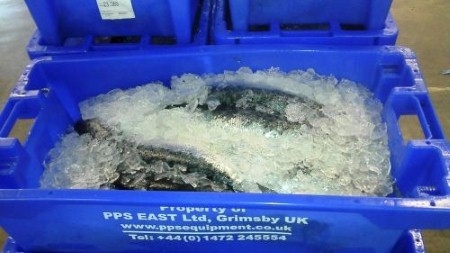 cument approved by an independent verifier that summarizes the environmental profile of a product or service in a standardised and objective manner based on life cycle assessment (LCA) and in accordance with the international standard ISO 14025.
cument approved by an independent verifier that summarizes the environmental profile of a product or service in a standardised and objective manner based on life cycle assessment (LCA) and in accordance with the international standard ISO 14025.As the demand for optimal waste management continues to increase, it has become even more important that companies look at the facts and explore every opportunity to reduce waste and introduce recycling and recovery systems, which can contribute to cost effective supply chain operations.
MARINEPACK RESEARCH PROJECT
Initiated by Emballasjeforsk and the Federation of Norwegian Fishing Industry, the aim of the MARINEPACK project was researched and calculated by Ostfold Research to identify environmental, economic and resource efficient packaging solutions for seafood. To-date there has never been such an independent, in-depth study done on bulk packaging methods used to transport fresh fish.
In order to ensure credibility and comparability of analyses, a reference group was established consisting of senior representatives from various packaging manufacturers, packaging users and distributors. The Group included companies representing cardboard manufacturers, EPS (polystyrene) manufacturers, corrugated polypropylene and other “single use” packaging companies together, with reusable plastic boxes represented by PPS East based in the UK.
The intention of the project was to enable a fair and neutral comparison of the environmental and economic performance of seafood bulk packaging products by agreeing on a set of calculation rules (Called “Product Category Rules” = PCR). The Group worked towards ensuring that the results could be used by packaging producers, customers and other interested parties. The study aimed to include the entire value chain from packaging plant to customer, and to comply with the standards ISO 14044 and ISO 14025.
The “cradle to grave” or LCA (life cycle analysis) included all life cycle steps from raw material extraction (cradle) of packaging to the ultimate recycling or land fill impact (grave). Several assessments concluded that it was important to also take the whole value chain, from seafood packing plant to end customer into account when evaluating all of the currently used packaging systems.
The method was formalised in Product Category Rules (PCR) for seafood transport packaging in the Norwegian Environmental Declaration Scheme administered by EPD Norway. The work was coordinated with the project aiming at developing a Norwegian Standard and PCR for seafood, which was financed by the Government (Ministry of Fisheries and Coastal Affairs) and the seafood business (FHF, The Norwegian Seafood Research Fund), a project in which Ostfold Research participates.
A PCR enables companies to generate an Environmental Product Declaration (EPD), which is a widely-recognised, credible form of environmental documentation.
According to researcher Erik Svanes at Ostfold Research: “Over the years we have observed significant differences in environmental performance between different packaging products. At the same time the seafood experts in the research institute Nofima, with whom we are cooperating in Marinepack, have found that the ability to preserve the products quality is relatively similar between the products.
However we have lacked a set of common rules for comparing the environmental performance. The PCR provides such rules. The Norwegian Environmental Declaration is a neutral, 3rd party certification scheme has a high credibility in the market.
We hope that seafood producers will start to require such documentation from packaging suppliers so that they will be able to choose the systems that have a low environmental impact.”
Having been involved with MARINEPACK, PPS East Limited has openly committed to supporting the recommendations and produced their verified Environmental Product Declaration (EPD) for their certificate to be granted.
A spokesperson for PPS East Limited, commented “PPS are extremely happy with the result of this research study. We now have proof for our customers about reusable fish packaging and the low amount of energy it uses. We look forward to openly comparing our EPD with other forms of seafood packaging and would urge seafood suppliers, processors and retailers to ask their seafood packaging manufacturer to produce their EPD. It is important to know the total carbon emission and energy output of their product”





